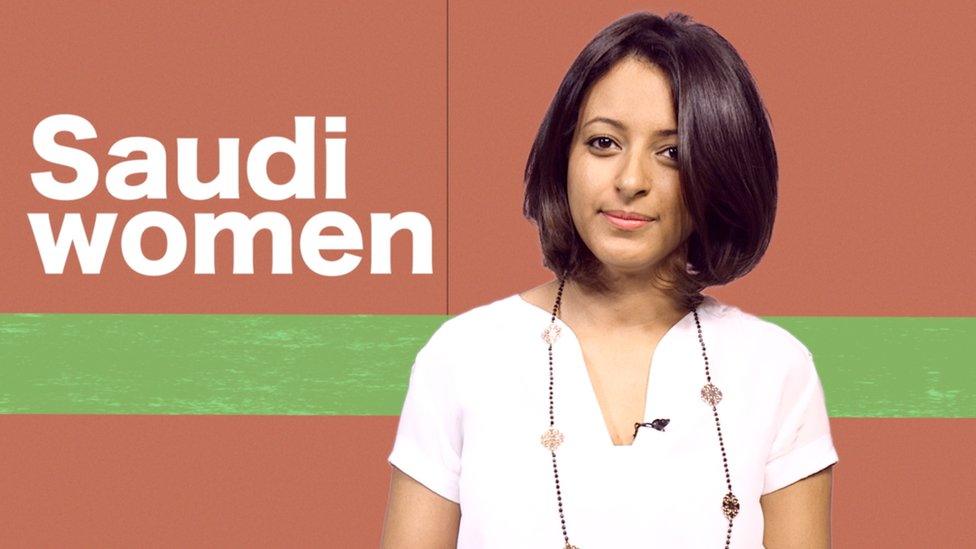Saudi Arabia investigates video of woman in miniskirt
- Published
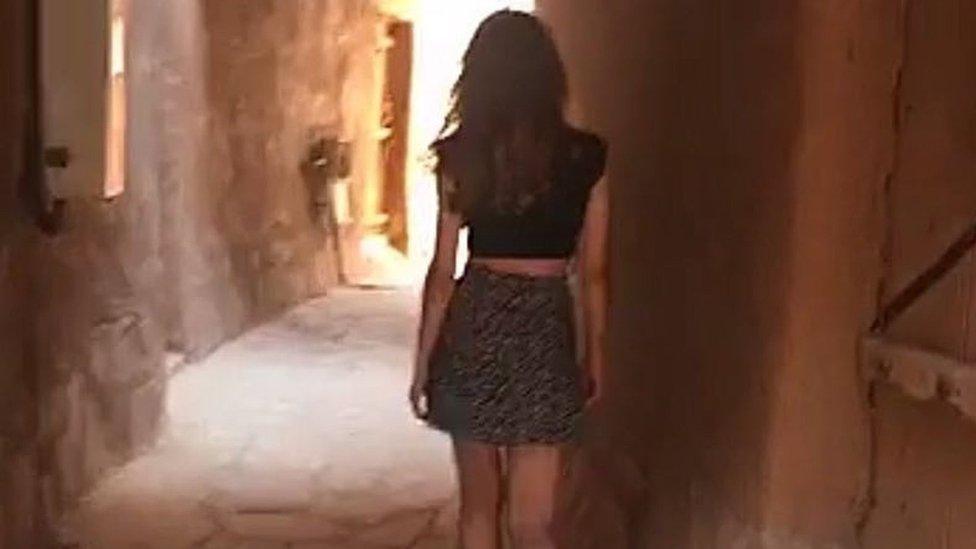
The video of "Khulood" walking around Ushayqir was shared initially on Snapchat
The authorities in Saudi Arabia are investigating a young woman who posted a video of herself wearing a miniskirt and crop-top in public.
The woman, a model called "Khulood", shared the clip of her walking around a historic fort in Ushayqir.
The footage sparked a heated debate on social media, with some calling for her arrest for breaking the conservative Muslim country's strict dress code.
Other Saudis came to the woman's defence, praising her "bravery".
Women in Saudi Arabia must wear loose-fitting, full-length robes known as "abayas" in public, as well as a headscarf if they are Muslim. They are also banned from driving and are separated from unrelated men.
In the video initially shared on Snapchat over the weekend, Khulood is seen walking along an empty street in a fort at Ushayqir Heritage Village, about 155km (96 miles) north of the capital Riyadh, in Najd province.
Najd is one of the most conservative regions in Saudi Arabia. It was where the founder of Wahhabism - the austere form of Sunni Islam that is practised by the Saudi royal family and religious establishment - was born in the late 18th Century.
The video was quickly picked up by Saudis on Twitter, where opinion was divided between those who believe Khulood should be punished and others who insisted she should be allowed to wear what she wanted.
Allow X content?
This article contains content provided by X. We ask for your permission before anything is loaded, as they may be using cookies and other technologies. You may want to read X’s cookie policy, external and privacy policy, external before accepting. To view this content choose ‘accept and continue’.
Journalist Khaled Zidan wrote, external: "The return of the Haia [religious police] here is a must."
Another user argued, external: "We should respect the laws of the country. In France, the niqab [face-covering veil] is banned and women are fined if they wear it. In Saudi Arabia, wearing abayas and modest clothing is part of the kingdom's laws."
The writer and philosopher, Wael al-Gassim, said he was "shocked to see those angry, scary tweets".
"I thought she had bombed or killed somebody. The story turned out to be about her skirt, which they did not like. I am wondering how Vision 2030 can succeed if she is arrested," he added, referring to the reform programme unveiled last year by Saudi Arabia's newly-appointed 31-year-old Crown Prince Mohammed bin Salman.
In April, Saudi women's rights campaigners filmed themselves walking silently in protest against driving restrictions
Some defended Khulood by noting that US President Donald Trump's wife, Melania, and daughter, Ivanka, had chosen not to wear abayas or headscarves during a visit to Saudi Arabia in May.
Fatima al-Issa wrote, external: "If she was a foreigner, they would sing about the beauty of her waist and the enchantment of her eyes... But because she is Saudi they are calling for her arrest."
On Monday, the Okaz newspaper reported, external that officials in Ushayqir had called on the provincial governor and police to take action against the woman.
The religious police, the Committee for the Promotion of Virtue and the Prevention of Vice, meanwhile wrote, external on Twitter that it had been made aware of the video and was in contact with the relevant authorities.
- Published6 June 2017
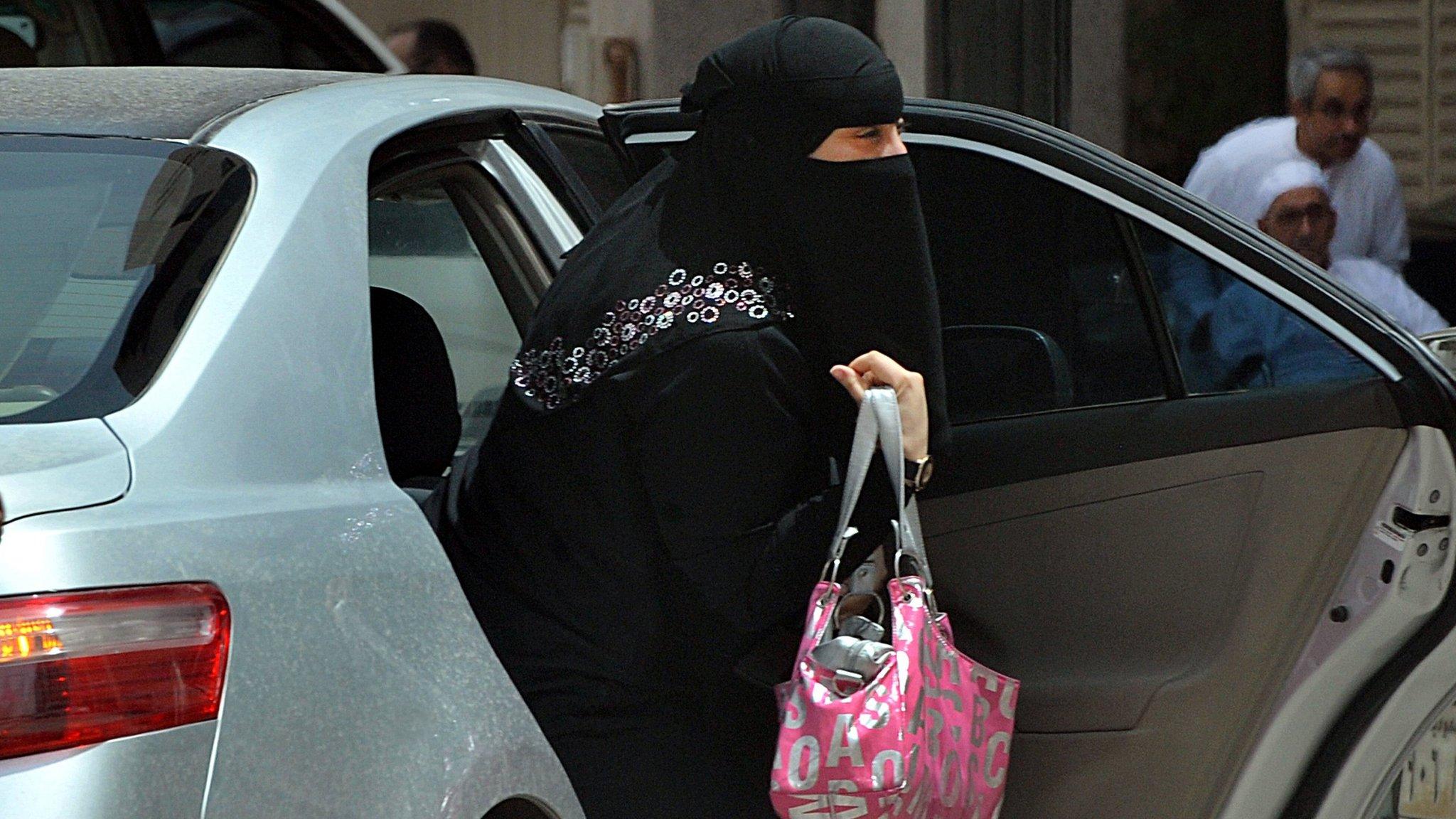
- Published4 July 2017
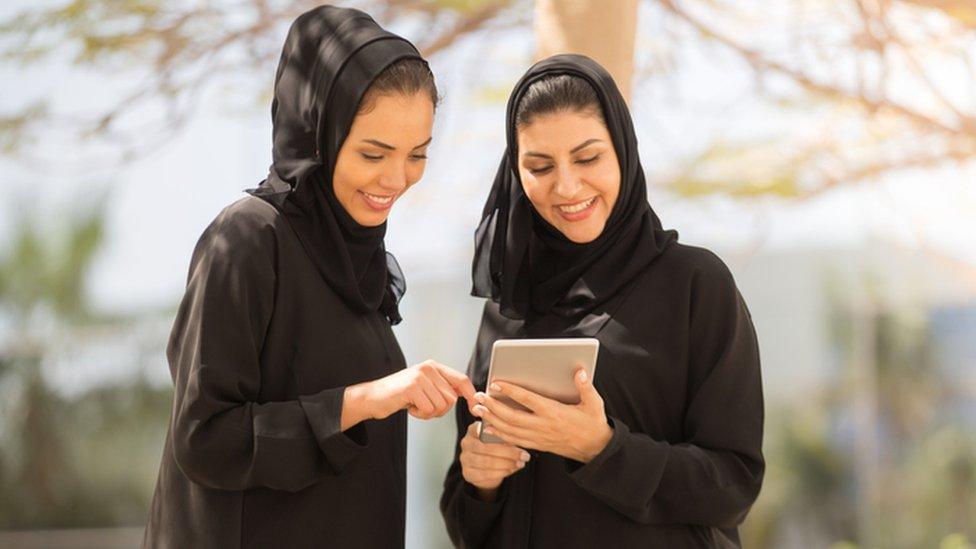
- Published5 January 2017
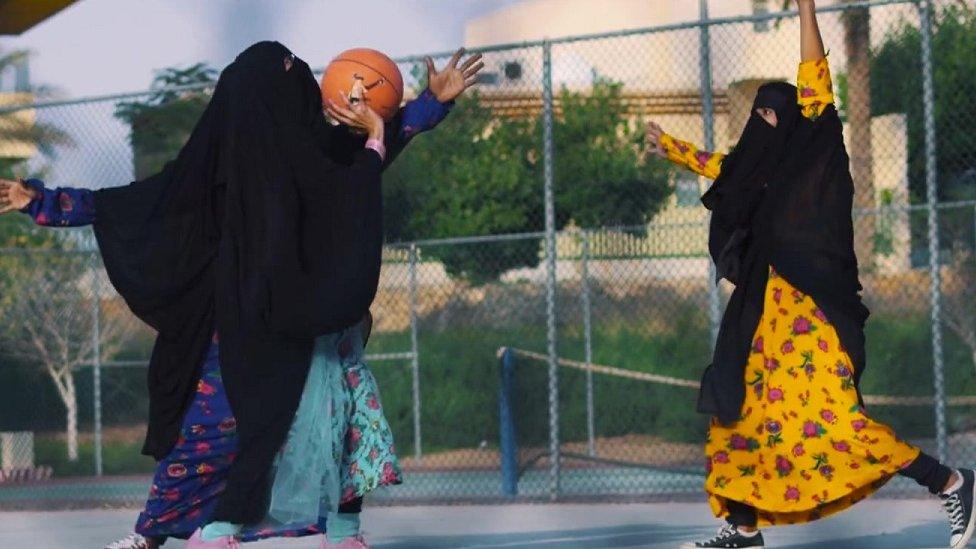
- Published8 March 2016
